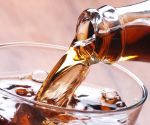Antimicrobial mouthwashes can help to control plaque build up and prevent gingivitis. Many products are "accepted" by the American Dental Association (ADA) and use their seal of approval on their product labeling. The ADA seal of acceptance process is rigorous and products must be shown to be safe and effective. Antimicrobial mouthwashes can also successfully reduce bad breath. Side effects of rinsing with mouthwashes that contain alcohol are a mild stinging or burning sensation and dry mouth.
Once the plaque has been removed, a mouthrinse can be used to help remineralize the teeth with fluoride. Most will also leave a fresher feeling and taste in the mouth. However, many of the mouthrinses contain alcohol or detergents that will dry the mouth and lead to increased levels of plaque and eventually bad breath. After proper brushing and flossing its best to use a non-alcoholic mouthrinse, preferably one that contains fluoride and has been approved by the ADA.
If you have difficulty brushing and flossing, a mouthrinse may provide additional protection against cavities and gum disease. Look for products that carry the American Dental Association Seal of Acceptance, which have been tested for their safety and effectiveness.
Continue Learning about Oral Health
Important: This content reflects information from various individuals and organizations and may offer alternative or opposing points of view. It should not be used for medical advice, diagnosis or treatment. As always, you should consult with your healthcare provider about your specific health needs.









